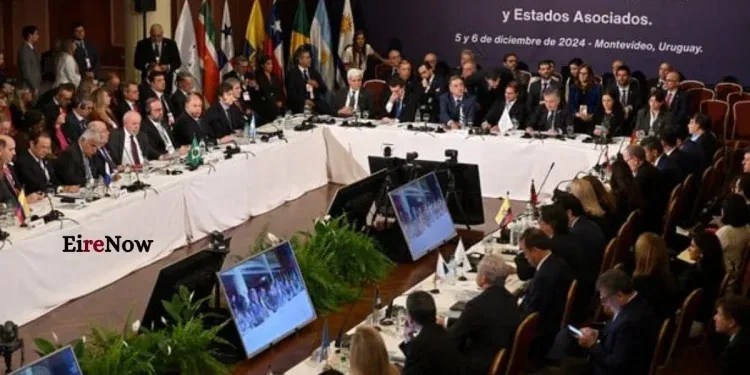The European Commission is moving to formally propose the ratification of the EU-Mercosur free trade agreement, a pact that has sparked intense debate and opposition, particularly from the agricultural sector in several member states. The deal, signed in December, still requires approval from EU member states and the European Parliament to take effect.
Agricultural Concerns vs. Economic Opportunities
A central point of contention is the potential impact on European farmers. Farming groups, including the Irish Farmers’ Association (IFA), argue that the agreement would flood the market with cheap South American beef and poultry, produced at a lower cost and without adhering to the same high environmental and safety standards as in Europe. The IFA has warned that the proposed import quota of 99,000 tonnes of beef could displace a significant portion of current EU production, posing a particular threat to Ireland, the largest beef exporter within the EU.
In an effort to address these concerns, the Commission has included what it describes as legally binding safeguards to protect European agriculture from “market-distorting impacts.” The text also reportedly includes a sustainability protocol with commitments to the Paris Climate Accord and halting deforestation, aiming to assuage environmental and food safety worries.
A Divided European Union
The ratification process is complicated by deep divisions among EU member states. Countries with large agricultural sectors, such as Ireland and France, remain opposed to the deal in its current form. The French President, Emmanuel Macron, has insisted on protections for French farmers. Other countries, including the Netherlands, Austria, and Poland, have also expressed reservations. The deal’s fate could hinge on Italy’s position, as a “No” vote from the nation could prevent the agreement from reaching the qualified majority needed for approval.
Conversely, major exporting nations like Germany, Sweden, and Denmark are strong advocates for the deal, citing the significant economic opportunities it presents. They highlight the potential for reduced tariffs on a wide range of EU goods, including cars, pharmaceuticals, and machinery, as well as on agricultural products like cheese, wine, and spirits. The agreement is also viewed as a strategic tool to secure access to critical raw materials, such as nickel and copper, which are essential for the green transition and currently sourced from Russia and China.
The push for the deal has been given renewed momentum by what many see as the current U.S. administration’s aggressive trade policies, with the EU and Latin America seeking to strengthen their own trade ties based on established global rules.







